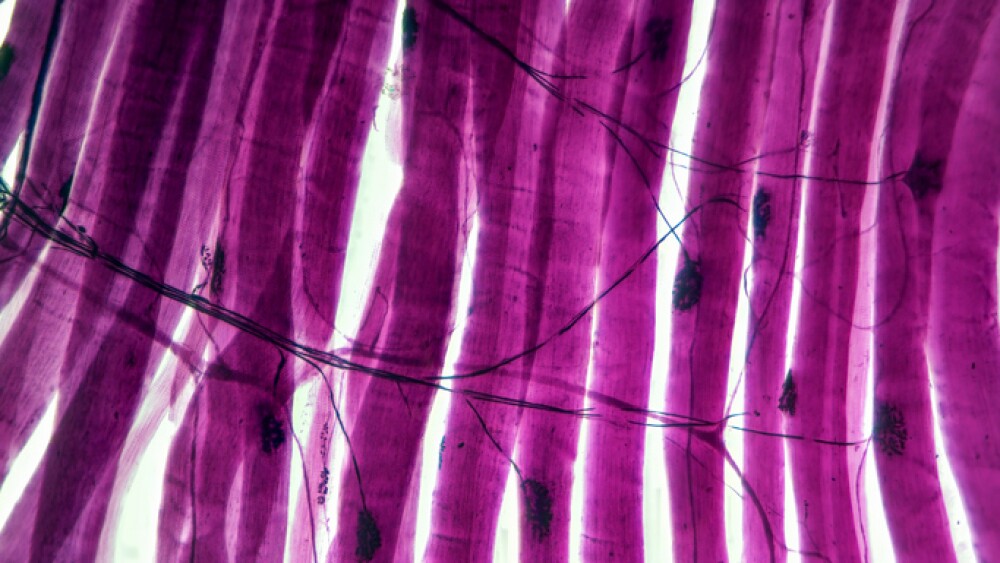Flare Therapeutics today highlighted the first preclinical data from its lead compound FX-909, a novel, small molecule peroxisome proliferator-activated receptor gamma (PPARG) inhibitor to potentially treat patients with advanced urothelial cancer (UC), in an oral presentation and poster format at the AACR Annual Meeting being held in Orlando, FL from April 14-19, 2023.
|
--FX-909 is highly potent and selective for the PPARG transcription factor, and demonstrates tumor eradication in preclinical animal models of urothelial cancer at low oral doses-- --Therapeutic efficacy of FX-909 assessed through gene expression profiling of normal skin tissue, potentially offers a less invasive surrogate biospecimen collection method compared to a traditional tumor biopsy-- CAMBRIDGE, Mass., April 17, 2023 /PRNewswire/ -- Flare Therapeutics, a biotechnology company targeting transcription factors to discover precision medicines for cancer and other diseases, today highlighted the first preclinical data from its lead compound FX-909, a novel, small molecule peroxisome proliferator-activated receptor gamma (PPARG) inhibitor to potentially treat patients with advanced urothelial cancer (UC), in an oral presentation and poster format at the AACR Annual Meeting being held in Orlando, FL from April 14-19, 2023. "These initial findings suggest that FX-909 could become a backbone therapy for patient populations harboring the luminal subtype of UC, much like ER therapies in the luminal subtype of breast cancer," said Rob Sims, Ph.D., Chief Scientific Officer and Co-founder of Flare. "We are eager to continue advancing FX-909, which will be further evaluated in a Phase 1 trial that will begin later in the year. This will be a milestone moment for Flare, as we are the first company slated to enter the clinic with a small molecule inhibitor targeting the PPARG transcription factor for advanced UC." Flare is building a pipeline of potentially first-in-class therapies against genetically validated transcription factor targets, initially focused on cancer. Although challenging to drug, elusive transcription factors remain high-value targets across numerous disease categories, most notably oncology. Treatments that target cell lineage have become mainstay therapies in breast and prostate cancer, through the successful inhibition of the estrogen receptor (ER) and androgen receptor (AR) transcription factors. Similar to ER and AR, PPARG drives luminal cell identity and accounts for two thirds of all advanced UC, highlighting its potential as a therapeutic target. The oral presentation, titled, "Discovery of FX-909, a first-in-class inverse agonist of the peroxisome proliferator-activated receptor gamma (PPARG) lineage transcription factor, to potentially treat patients with the luminal subtype of advanced urothelial cancer (UC)," shows that administration of FX-909 elicited durable tumor regressions in animal models of UC. The projected human starting dose of 50 mg/kg is also anticipated to be pharmacologically active. Additional key takeaways are as follows:
The poster presentation titled, "Development of a surrogate tissue pharmacodynamic (PD) assay for potential clinical use with FX-909, a novel inhibitor of the urothelial luminal lineage transcription factor peroxisome proliferator-activated receptor gamma (PPARG)," outlines the FX-909-dose dependent expression of PPARG target genes as markers of PD response in tumor, adipose and skin tissue from mouse xenograft, and normal rat and normal human skin preclinical models. "Based on our observation of the consistent correlation of PPARG target gene expression patterns in tumor and normal tissues, we have elected to develop a normal skin PD biomarker assay to support early assessment of FX-909 biological activity in our Phase 1 study," said Michaela Bowden, Ph.D., Chief Development Officer of Flare. "These findings reinforce the importance of uncovering valuable translational insights and applying them to further guide our drug development process, potentially enabling us to reduce the burden of repeated, invasive tumor biopsy collections for patients with late-stage cancer by offering surrogate skin biopsies as a viable alternative." Additional key takeaways are as follows:
About Urothelial Cancer About Flare Therapeutics
SOURCE Flare Therapeutics |





